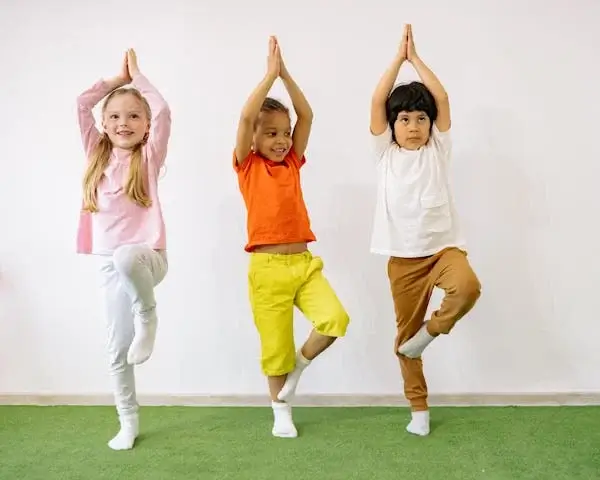
Table of Contents
Introduction
Benefits of meditation for students – In the hustling and bustling modern world, students go through a host of pressures that burden them vis-à-vis academic performances and social life, hence affecting their mental and physical health.
Meditation has thus come to the fore as very important in building up a successful personal and professional life amidst all this turmoil. This age-old practice is confined not only to spiritual dimensions but is practiced at a high scale within educational circuits due to the invaluable gains derived from it.
This blog will reflect upon the benefits of meditation towards students and how some morning exercise combined with meditation can lead to a balanced and successful life as a student.
Definition and Origin of Mediation:
Meditation is a practice designed to focus one’s mind on a specific object, thought, or activity and is therefore able to gain a clear and calm state of mind and emotions.
Its roots date back thousands of years to ancient times in India and China, where this was practiced as a means of development concerning the holy and mystic forces of life. Today, meditation is practiced across the globe for relaxation, mindfulness, and well-being.
Manifold Meditation Practices That Benefit Students:
1. Mindfulness Meditation: This method makes a person fully present in the moment—aware of where we are and what we’re doing—and not very reactive or overwhelmed by what’s happening around us. This practice keeps one focused and free from stress.
2. Guided Meditation: Normally, this will be led by some guide or teacher who is using visualization and imagery to put people into relaxation and focus.
This really helps beginners who would like some kind of induction into meditation practice.
3. Breathing Exercises: Simple breathing techniques are so easy; they require one to focus only on the breath to help still the mind from anxiety. In itself, that makes it an easy and effective form of meditation among students.
Benefits of Meditation to Students
Mental Health Benefits:
1. Lower levels of stress and anxiety: This is one of the top benefits that would accrue from meditating. This is because it will lower levels of cortisol and make these students feel more relaxed and less overwhelmed with academics.
2. Concentration and Focus: Meditation is a practice that trains the mind to rest on the present moment, thus increasing concentration and attention. This would help the most in students who really need to focus on their studies amongst various other distractions.
3. Emotional Well-being and Health: Through meditation, a student can meet himself at a deeper level. This practice develops self-awareness and yields emotional well-being.
It enables the students to outbalance their emotions, thereby reducing the overwhelming effects of negativity in their lives and promoting joy.
Physical Health Benefits:
1. Better Sleeping Pattern: Meditation relaxes the brain by eliminating the rush of thoughts and negative ideas crowding the brain that eventually finds a way to disturb one’s sleep. Good sleep, therefore, follows through meditation practiced before going to bed, which is necessary for part of students’ health and their performances in class.
2. Lower Blood Pressure: It is scientifically proved that blood pressure will start falling if the person does meditation daily. Therefore, it decreases the dangers of heart-related diseases and thus increases health.
3. Immune System Function: Researches have shown that through meditation, one assists in enhancing the body’s resistance or capability to fight infections, hence making the students healthier, better, and more resistant against diseases.
Academic Advantages:
1. Better Grades: Meditation enhances memory and attention, refines problem-solving skills—better cognitive functions, hence better grades. Students who meditate regularly will find it relatively easy to study more effectively.
2. Improved Retention and Grasping of Material: With better focus and lesser stress, meditation allows students to hold on and grasp academic material better; hence, learning becomes easier.
3. Enhanced Problem-Solving Ability: Meditation de-clutters the mind and allows creative thinking besides it enhances the problem-solving ability, which is a vital ingredient for success in academics.
Personal Development:
1. Self-awareness and mindfulness development: Meditation helps in building much deeper personal understanding that fosters self-development and -improvement. It will make the student aware of thoughts and behaviours so that they can lead life with a purpose.
2. Manliness: The regular practice of meditation concentrates on positive aspects rather than the negative ones. It helps to have a positive attitude towards life.
Such positivity has an overwhelming impact on the level of motivation and a general attitude towards studies for any student.
3. Man Building Resilience and Coping Skills: Meditation helps build resilience in students by teaching them how to deal efficiently with stress and cope with the trials of life.
This is very important in helping them face day-to-day hurdles and beyond school.


Morning Exercise for Students: Incorporating Meditation
Importance of Morning Exercise for Students:
Morning exercise is important for any student as it jump-starts the day filled with much energy and positivism. Improved health, better mood, and a sharper mind enable students to deal with the challenges of the day.
Combining Meditation with Morning Exercise
Meditation and morning exercise can be combined to exponentially enhance both practices. Here’s how the students can effectively perform both:
1. Examples of Morning Meditation Practices:
O breathe-work mindfulness: Spend a few minutes every morning engaging in some breath mindfulness to help canter the mind and prepare it for the activities of the day.
O Yoga and meditation: This would be an ideal morning routine. Yoga is a great combination of physical activity and mindfulness. A few simple poses in yoga followed by a short mediation session gets the day off right.
o Meditative Walk: A morning walk while meditating, focusing on breathing and the sensations of each walk, is a refreshing way to implement meditation onto an exercise routine.
Why Meditate in the Morning?
1. Oodles of Energy, Loads of Focus: To start the day with the practice of meditation helps clear the mind of any impurities and charges one with oodles of energy to focus on a day ahead full of focus and productivity.
2. Better Mood and Emotional Regulation: By having morning meditation, a good tone can be set for the day ahead since one will be able to control their mood, hence maintaining a positive mood.
3. Better Preparedness for Learning: Much facility of learning can be when the mind is calm and composed. Morning meditation sets the student up mentally and emotionally to face challenges of the day.
Tips for Students to Get Them Started with Meditating
Create a Meditation Space:
A peaceful spot or corner for meditation will help one develop a routine. It needs to be an area that is comfortable, quiet and without distractions.
Getting it Right: Timing and Duration
First few times, it is best to meditate for 5-10 minute intervals so that it does not seem too overwhelming for a beginner. This can be increased gradually as comfort levels with meditation rise.
Easy Meditation Techniques to Get Them Started
1. Meditation Apps: There are apps such as Headspace and Calm, which provide guided meditation sessions and are specifically meant for beginners at meditation.
2. Breathing Exercises: The very basic breathing exercises, e.g., being aware of the breath or counting the inhale and exhale within the mind, can effectively be the starting place for doing meditation.
3. Body Scan Meditation: Mentally going through the whole body from head to toe, bringing awareness to every part, releasing tension
Integrating Meditation into Daily Activities
1. Meditation Before/After Morning Exercise: Practice a short meditation either before or after morning exercise to firmly reiterate the benefits of both.
2. Brief Meditation During Study Sessions: Breaking study sessions with a short meditation can refresh students, making them feel energized and attentive to the materials being studied.
Common Issues Experienced
Commonly Circulated Myths of Meditation:
Many students might have such myths about meditation, as it would be time-consuming or even one has to acquire special skills. Some education may help to clear these barriers since it informs students that meditation is a quite straightforward and accessible task that involves no time.
Help on How to Meditate Religiously All the Time:
1. Scheduling: Allocate a specific time every day to meditate, and this would help you in creating a habit of doing so.
Starting Small: Start meditating for small portions at a time and increasing the duration little by little since it makes meditation less daunting and overwhelming.
Minimising Distractions and Maintaining Focus:
A Quiet Space: The space should be quiet and comfortable, with no noise or disturbance, for one to have a worthwhile meditation session.
Guided Meditations: Such sessions help the students focus, and to some extent, the students are given direction on how to practice meditation.
Development of Growth Mindset on the Practice of Meditation:
Reminding them that meditation is developed over time is likely to keep the student motivated and committed. It encourages them to be very patient with themselves and enjoy the ride for there to be a positive attitude toward meditation.


Conclusion:
Great solutions have been associated with meditation, which help a lot in bettering students’ lives on a personal basis and in their careers. The strong benefits of meditation can reduce stress levels, improve both mental and physical conditions, and be of help in academic performances and on the way to personal growth. Such kind of benefits can easily be felt provided if meditation is taken up regularly as part of the daily routine, most importantly through morning exercises, thereby placing the students on their way to a balanced and successful life.
